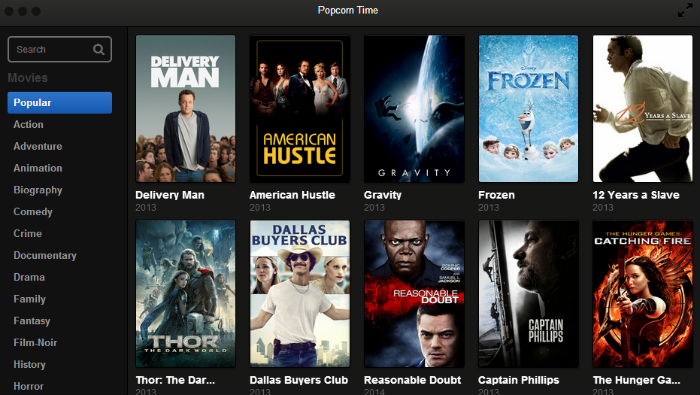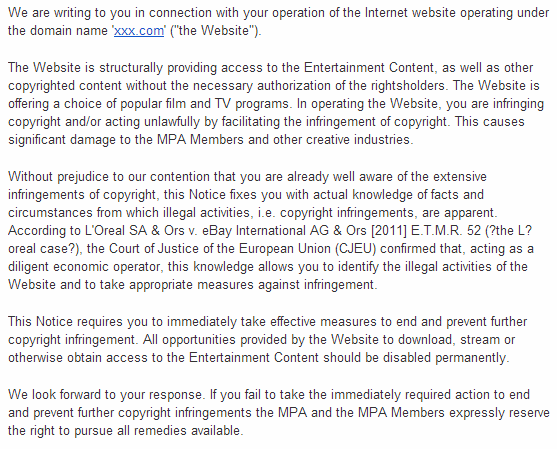Russia’s Facebook Prepares To Make Peace With USTR Over Piracy
dimanche 9 mars 2014 à 09:50 Every year the Special 301 Report identifies countries thought by the United States Trade Representative to pose the biggest intellectual property-related threats to U.S. companies. Russia has been a ‘priority’ country for some time, not least due to the actions of one of its biggest and most influential websites.
Every year the Special 301 Report identifies countries thought by the United States Trade Representative to pose the biggest intellectual property-related threats to U.S. companies. Russia has been a ‘priority’ country for some time, not least due to the actions of one of its biggest and most influential websites.
VKontakte (In Touch), is Russia’s Facebook. It’s a huge operation with tens of millions of users, each of whom has the ability to upload music, movies and TV shows to share with their friends. And with their friends’ friends. And with their friends’ friends’ friends.
Needless to say, entertainment companies aren’t pleased that this social networking giant is facilitating piracy on a grand scale, especially when that content – music in particular – goes on to fuel countless free MP3 download portals all around the Internet. If you’ve ever downloaded MP3s from the free web, chances are some of that music has come from VK.
For some time VK has been keen to update its image by making steps towards becoming more rightsholder-friendly. That said, it’s never really been enough for the U.S. and as a result Russia has again found itself on the latest Special 301 Report. But there signs that things could be getting more serious.
VK Executive Director Dmitry Sergeyev told ITAR-TASS yesterday that consultations between his company and rightsholders were underway, with a view to the signing of an anti-piracy memorandum with telecoms regulator Roskomnadzor.
As the government outfit at the center of Russia’s web-blocking mechanism, Roskomnadzor has significant power. Its anti-piracy memo deals with the pre-trial settlement of disputes between sites and copyright holders and requires signatories to implement content fingerprinting and identification systems in order to filter and block unauthorized material.
 “VKontakte will introduce content identification, which will be used to monitor and promptly delete published content protected by copyright,” a source close to the company said.
“VKontakte will introduce content identification, which will be used to monitor and promptly delete published content protected by copyright,” a source close to the company said.
“This will be the first step towards eliminating the social network from of the U.S. Trade Representative’s Special 301 Report, which is currently limiting the company’s ability to raise funds abroad and sign agreements with foreign rightsholders.”
Anti-piracy memorandum signatory the Russian Anti-Piracy Organization (RAPO) will be the messenger of progress. The group says it will monitor VK for pirate content in the months to come and if there is significant improvement, the MPAA will be informed.
“During this year, the industry will be observing what is happening to the sites, including VK.com,” RAPO chief Konstantin Zemchenkov said.
“If pirate content disappears from the social network, we’ll report to the MPAA, which in turn will report that fact to the IIPA [International Intellectual Property Alliance], which will inform the US authorities.”
Since the Special 301 Report is based on the previous years’ data, even in the event of progress VK won’t be able to get off the list until 2015. The site has been included since 2011, so removal isn’t going to come easy. Other local sites, such as RUtracker.org and Rapidgator, remain on the list as thorns in the side of the U.S.
Source: TorrentFreak, for the latest info on copyright, file-sharing and VPN services.
 Over the years BitTorrent has become fairly mainstream, with hundreds of millions of people using torrent clients to download the latest entertainment.
Over the years BitTorrent has become fairly mainstream, with hundreds of millions of people using torrent clients to download the latest entertainment. 
 Faced with a Pirate Bay website that simply refused to die, in 2010 Hollywood-linked anti-piracy group BREIN decided to take a different approach to the problem. If The Pirate Bay wouldn’t disconnect itself from the Internet, BREIN would force ISPs to disconnect their customers from the site instead.
Faced with a Pirate Bay website that simply refused to die, in 2010 Hollywood-linked anti-piracy group BREIN decided to take a different approach to the problem. If The Pirate Bay wouldn’t disconnect itself from the Internet, BREIN would force ISPs to disconnect their customers from the site instead.
 Representing the major Hollywood studios, the Motion Picture Association (
Representing the major Hollywood studios, the Motion Picture Association (